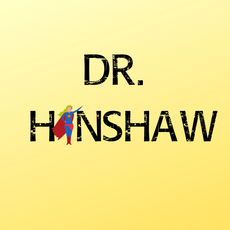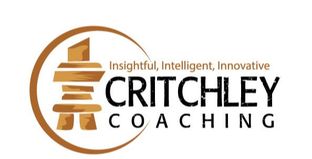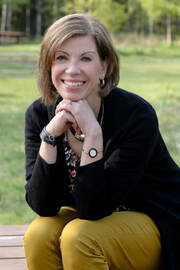
Don’t panic just yet. I’m pretty sure I’ll be Covid free. But I’ve been fighting a bug for months and my doctor suggested doing this test to at least eliminate this possibility. I’ve mentioned that if I do have Covid 19, I will likely be given the dubious title of patient zero. I will also go down in history as having the longest ever case of it! Luckily, our province has set up an environment whereby testing is easy. I’ll rest easier once I get my results, but in the meantime, I’ll be grateful to be able to have had testing.
Over the past couple of months, I’ve been captivated by some of the emerging leaders in our country. Not only am I thankful for the leadership they provide, I also find myself observing the traits they exhibit that make them so effective in their roles. I’m trying to figure out how to incorporate their qualities into my personal life.
The leaders I find myself most drawn to are the ones leading with calm, accurate information. They don’t waste time casting blame and pointing fingers. They look at the most current data, make calculated decisions based on the best data they have at the moment, and put a plan in place. They somehow manage to do this with a sense of warmth and compassion. In Alberta, the leader doing this is Dr. Deena Hinshaw, our chief medical officer of health. To increase her effectiveness even further she follows her planning and execution with clear and thoughtful communication of the plan. It is so much easier to get people on board when we understand why we are being asked to do something. When things are simply mandated, without explanation, it’s easy to get our hackles up and want to push back; just because we can. The second thing Dr. Hinshaw and her team are doing, and this is the one I’m practicing on myself, is, once the plan is executed, they do not assume the work is done and move on. Instead, being competent leaders, they look at the impact of the plan, they look at the new data arising, and then they go back to step one, once again to look at the new most current data, make a calculated decision, put a plan in place, observe the impact and results, and repeat.
I think a mistake many of us make is to implement a new habit or routine or rule, and then forget to check back in after a certain time to see if we are obtaining the results we had hoped for.
This week in Alberta, Dr. Hinshaw, is making several significant changes to the rules restricting Albertans. The first is, in light of the horrific flooding in Fort MacMurray, she lifted social distancing measures to allow the citizens of that city, and other volunteers, to work effectively together to sandbag critical areas of the city and to distribute emergency supplies. I haven’t heard one single person (mind you, if you recall, I AM inside my house and get all news from television) complain that this isn’t fair. No one is saying that if the residents of Fort Mac can have this measure removed, so should we all.
The measure in Fort MacMurray is caused by a new emergency that in effect trumps the Covid19 emergency. It is a completely different situation than the rest of us are dealing with. Residents of our province easily understand that it needs different measures until the crisis passes. But there is a second changing measure that is even more incredible. This change is being implemented in a place where no new emergency exists. This is in our senior’s residences. These places have been the hardest hit by the pandemic. The combination of a vulnerable population, and the close quarters in which they live have provided the ingredients for the perfect storm. It surely has been storming inside those residences.
It made perfect sense to lock down these facilities, to control who goes in, and to control the movement of the residents within. And yet this week, Dr. Hinshaw announced she is changing protocol. She, and her team, noticed an unintended consequence of the plan they implemented. Even though their plan was based on the best data they had, they are observing recently that the isolation measures are taking too great a toll on this already vulnerable population. Instead of stubbornly sticking to the original plan, new measures will allow for some restricted visiting, albeit outside, limiting visitors, observing the two-metre rule, and wearing masks.
I could jump for joy seeing this kind of leadership at work. And as I jump, I have time to wonder how effective I am implementing this kind of leadership in my own life. How often do I make a plan, implement it, and just stubbornly see it through to the end, without stopping to observe whether it is actually the most effective plan, or if it is having consequences I never imagined or intended.
Species that do the best at surviving and thriving, are those that learn to adapt to changing environments and conditions. At the beginning of this pandemic, I used one of my tried and true coping strategies: make a list, start on the list, check off items, complete the list. That worked fairly well for about two weeks. The third week, my excitement was slipping. So, I copied my list onto a new sheet of paper. I assumed a fresh sheet of paper meant a fresh start for me! It didn’t help. I had to take a minute and notice which parts of my plan were working and which needed a few tweaks.
Over the past 5 weeks, I’ve learned something. I’m ok with a slower pace and a shorter list. I would NEVER have believed this a few months ago. My life was filled with go, go and more go. Because I was comfortable with that, I liked it. The new pace of my life reminds me of driving through a playground or school zone. In playground zones, I’m forced to slow down so I will more likely notice and react to unexpected situations – children crossing the road, balls rolling onto the street, kids swerving on their bikes etc. Chances are, if I didn’t have to slow down by law, I would continue to drive through these zones at my usual clip, and while I hope I’m a careful enough driver not to do any lasting damage, I suspect I would miss a lot. I notice more when I drive slowly. And I smile more at the little kids playing there.
So too with this enforced slow down on my life. My whole life has become a playground zone and my latest plan involves going slower and being more observant. In doing so I notice new things. I like to think I took a page from Dr. Hinshaw’s book, observed the results of my initial plan, gathered new data, made a new plan and put it in place. As I move at my new, possibly temporary, pace, I’m trying to notice the impact it’s having on me and others. I’m almost enjoying pretending to be a mini Dr. Hinshaw as I carefully gather scientific evidence of my new strategy. I can only hope to have her grace in being willing to notice when my actions and behaviour are not effective in helping me move toward becoming who I hope to be.
Thanks Dr. Hinshaw. You’re keeping us safe and teaching us grace. We’re lucky to have you. I’m hoping we will come out of this pandemic not only more grateful for our excellent health care system, and those who work in it, but also with a new template for how we can each be effective leaders.
My inquiry for you this week is ‘What would Dr. Hinshaw do?’
Elizabeth is a certified professional Leadership Coach, and the owner of Critchley Coaching. She is the founder and president of the Canadian charity, RDL Building Hope Society. She works with corporations, non-profits and the public sector, providing leadership coaching. She creates and facilitates custom workshops for all sizes of groups. She has particular expertise in facilitating Strategic Plans for organizations. Contact Elizabeth to learn how to fine tune your leadership skills.


 RSS Feed
RSS Feed